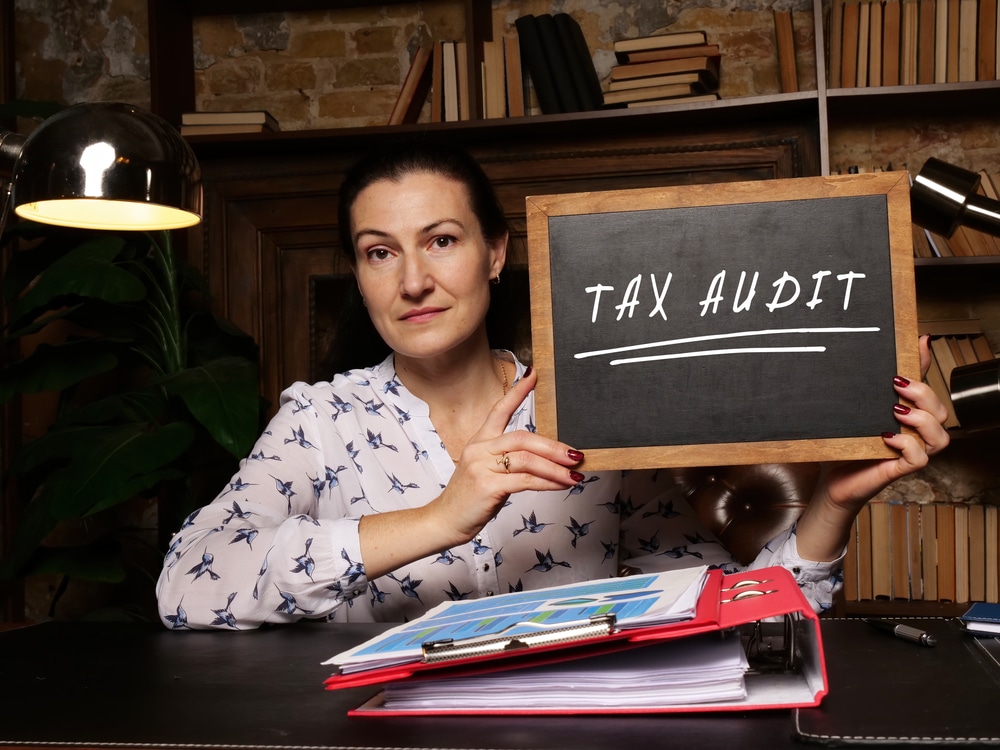This is How Expats Can Prepare and Overcome an IRS Tax Audit for the First Time

Receiving an IRS tax audit notice can be a daunting event for many. IRS audits are even scarier for first-time audit candidates and expats unprepared or unaware of the process. However, with some help from authorized tax experts, U.S. expats can easily prepare for an IRS tax audits and avoid costly mistakes.
If you’re a U.S. expat looking for sound advice regarding preparing for an IRS audit, this guide can help you. Here, we will share how you can work closely with your tax expert and the right questions you should ask them before undergoing an IRS tax audit.
Practice Your Right to Representation
Before going through a tax audit, you must be aware of your rights as a taxpayer. The Internal Revenue Service (IRS) provides a “Taxpayer Bill of Rights,” which serves as a cornerstone of the 10 fundamental rights of taxpayers. It was created to inform taxpayers on what to do when resolving tax matters. It discusses the procedure for examination, collection, refunds, and appeal processes.
The IRS actively highlights these rights while constantly reminding its employees to apply taxpayer rights in every encounter with taxpayers.
Once familiar with your fundamental taxpayer rights, the next best course of action is to exercise your right to be represented by an authorized tax expert. Practicing this right with the help of legal counsel can increase your chances of favorable outcomes in your IRS audit.
How to Prepare for an IRS Tax Audit with Your Tax Expert
At this point, you’re set to prepare for an IRS tax audit with your tax expert. Here are the steps you must take.
-
Gather all your tax documents and receipts
Before being audited, the IRS will send you a formal notice. The notice will typically state what specific information will be examined and the necessary documents you may need, giving you time to secure the requirements.
Here are some documents that IRS might request from you:
- Income statements and tax forms
- Receipts and proof of expenses
- Previous tax returns
- Loan agreements
- Legal documentation for property acquisition or divorce settlements
- Bank statements and canceled checks
-
Consult with a tax expert the moment you receive an audit notice
Seeking legal advice from a tax expert is crucial when you’re under audit. Ideally, it’s best to consult with a tax expert upon receiving an audit notice. Tax professionals can assist you through the process, answer tax-related questions, and provide options before, during, and after the audit.
In addition, if the tax audit requires legal proceedings and goes to court, tax experts can serve as your legal representation. Contact Tax Samaritan for an initial review and free consultation regarding your representation options for IRS tax audits.
-
Organize tax records to reduce errors (and lower tax preparation fees)
You could expedite the process and decrease the chances of errors by gathering and organizing all the relevant documents before the audit date. Organized files enable you to spot lacking or misleading information in your tax account.
Additionally, having the necessary tax records can lower tax preparation fees since tax preparers will charge you only for the time it took them to process your taxes.
-
Review the audit notice and understand what the IRS is requesting
Most audit candidates are not chosen randomly by the IRS. The revenue service typically focuses on a specific issue an individual or business might have regarding their taxes. With this in mind, reviewing and understanding the audit notice is crucial to anticipate an auditor’s line of questioning.
When you identify the issue and predict the questions the auditor might ask, you put yourself in a better position of providing accurate and targeted information to make the audit process more manageable.
-
Ask for an extension
If you lack the necessary documents and requirements and need more time to prepare, you can ask the IRS for an extension. The agency can grant a one-time automatic 30-day extension, in addition to the original 90-day preparation period, upon request.
However, the IRS may deny your request for an extension if you received a “Notice of Deficiency.” It’s best to consult your legal team first to identify any pending balances and overdue penalties before filing for an extension.
-
Respond to IRS information requests promptly
You will receive a document request if the IRS has determined that adjustments may be necessary regarding your returns. It’s in your best interest to submit these documents before the deadline so as not to create any more misunderstandings.
If your interpretation of your tax returns does not align with the IRS, you and a tax expert may contest these findings by writing a letter of appeal to the IRS and presenting your case on why you disagree with the audit results, backed by tax law and facts. The situation will come to two possible conclusions: either the IRS proposes adjustments or makes no changes to your tax returns.
If you disagree, the IRS will send you a letter with its findings and give you 30 days to appeal.
Read: A Comprehensive Guide on How to File Appeals to the IRS
Getting a Resolution with Professional Help
For the uninitiated, an IRS tax audit can be an overwhelming endeavor. It usually involves collecting and organizing specific paperwork required during an audit, not to mention the intricacies of an actual audit. Fortunately, hiring tax experts to help you through the process makes the situation more manageable since you’ll get proper guidance to resolve your tax-related problems.
If you’re looking for a provider of professional-quality tax resolution services, consider Tax Samaritan. Serving expats since 1997, Tax Samaritan eliminates all possible risks by ensuring your tax preparation is accurate and thorough. Get a free tax analysis today.


